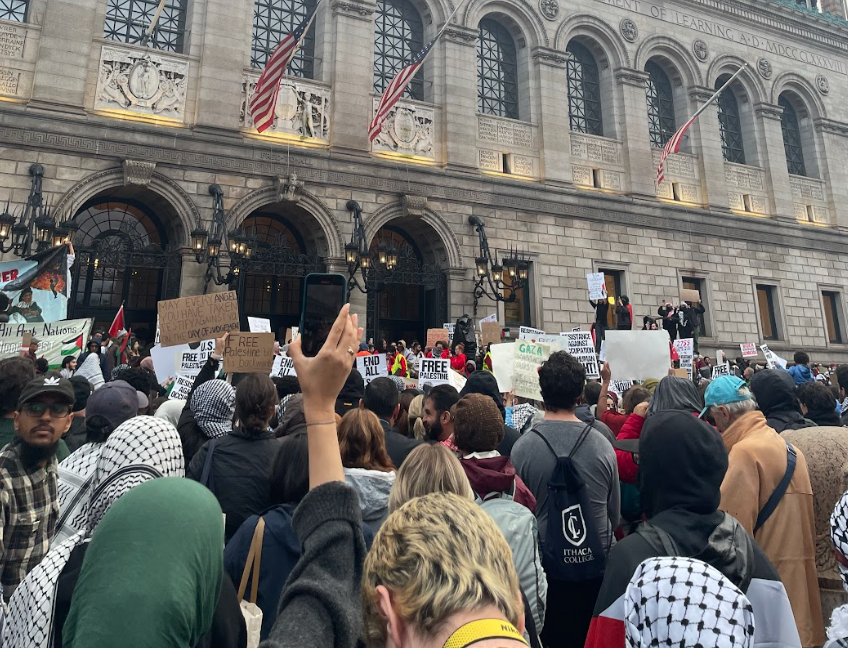At the sight of a green and white vehicle, the crowd huddled near Mass Ave. surged forward all at once. They were relatively young, college students, tangled earphones slipping out beneath their hair and heavy bags forcing their spine to curve. They waited, almost blocking the vehicle’s path, only to realize that the bus was full. There were thirty of them, and only a handful of remaining seats. It was 25 degrees; the Senate Bus was two hours late.
Every weekend, Wellesley students scamper down to the Peter Pan bus stop to visit a Boston venue of their choice, whether it be a mall, a library or a frat house — and to escape the “Wellesley bubble.” Alternative transportation routes allow frequent outings as well, but a majority of students prefer the Senate bus, because it is the most accessible, cheapest, and safe option. Students are grateful for a quality service that is much better than the corresponding Babson and Olin transportation systems.
However, the miscommunication regarding scheduling changes, the faulty GPS system and the inaccessibility of bus tokens frustrate Wellesley students.
Students worry most about the lack of timely information regarding scheduling changes. Time and route changes are both inevitable and understandable, especially in face of volatile weather and traffic. However, failing to inform students ahead of time forces them to find alternative, more expensive ways of returning to campus. Students can access the GPS tracking system online through their smartphones to locate an approximate position of the bus; however, most have long stopped relying on the technology due to frequent errors.
To make up for the faulty tracking system, students have seized the initiative to update the GPS tracker and employ Twitter hashtags to alert the community off campus when the bus arrives. These initiatives demonstrate that the Wellesley students struggle to compensate for something that should have already been provided for them.
Although Wellesley’s transportation website lists a “transportation hotline” number, students report that they are forced to listen to bus schedules on repeat. Changes in bus schedules often occur late at night, when most modes of public transit have halted and students resort to splitting fare for an Uber cab, which is expensive and potentially dangerous. If students decide to call campus police for a ride home, the fare is still put on tab for later payment. The College website explicitly states that over 50 percent of students receive financial aid, meaning that emergency cabs compound stress.
Another area that requires improvement is the bus token and punch pass system. Under the current system, students can purchase bus tokens and passes at either end of campus. Unfortunately, the passes cost $30, a steep price for people who do not visit Boston frequently. The Senate Bus and Natick Movie Shuttle recently banned cash payment, making tokens mandatory. The token machines in the Lulu and Stone D continue to flick the “out of order” red light constantly. The Wellesley News editorial staff is conscious of the efforts that have already been made to improve the Peter Pan. The problem is not the delays, students are aware that the bus can be stuck in traffic or delayed by weather, the problem is the lack of information available to students about the bus’s whereabouts. Effective communication would not only let students know where the bus is, but also make sure that all students are aware of important logistical changes, like the banning of cash or stop changes. Many students are not aware, for instance, that the Comm. Ave. stop has been moved.
Students would also greatly benefit from being able to track the bus.The ideal solution would be a functional and effective tracking system, one that students can check to know if the bus is running late.
In an area where the temperature can drop below 20 degrees Fahrenheit, forcing students to wait in open-air bus stops without notice of schedule change simply should not be an option.






